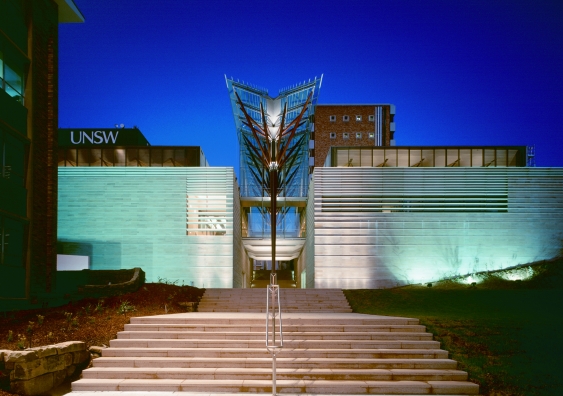UNSW tops state in ARC Discovery funding
UNSW researchers have been awarded more than $36 million in funding from the Australian Research Council, leading all universities across the state.
UNSW researchers have been awarded more than $36 million in funding from the Australian Research Council, leading all universities across the state.

Myles Gough
02 9385 1370
myles.gough@unsw.edu.au
UNSW researchers have won the highest amount of Australian Research Council funding in the state, securing more than $36 million in the federal government’s annual grant programs announced today.
The University has been awarded 67 ARC Discovery Project Grants worth $25.1 million, and 19 Discovery Early Career Research Awards, worth more than 6.5 million. In each category, the University ranks first in state, and third nationally.
UNSW has also secured nine ARC Linkage Infrastructure, Equipment and Facilities grants totalling more than $4.2 million, the second highest total in Australia (though the total income is distorted by a $13 million astronomy grant, administered by ANU on behalf of the entire country).
Four UNSW researchers have been awarded prestigious Discovery Project grants totalling more than $600,000, including Professor Lynne Bilston and Dr Angela Kelly from the Faculty of Medicine.
Kelly, who was awarded the highest total of all UNSW investigators – $666,361 over four years – is studying the way new biotechnologies are viewed and used in Papua New Guinea, in light of their cultural and religious landscape. Specifically, she’s interested in how HIV treatments and prevention technologies are helping couples with mixed HIV status.
Bilston, who received $620,000, is solving a long-standing problem in biomedical engineering – how to image the mechanical behaviour of soft biological tissues, such as muscles and organs, in vivo.
The Faculty of Science's Professor Oleg Sushkov, who is developing novel quantum materials, also won a Discovery Project worth more than $600,000.
Among researchers in the Faculty of Arts and Social Sciences, Professor Deborah Brennan secured the largest Discovery Project grant for her work investigating labour shortages and new policy designs in the critical sectors of aged care and childcare.
“The Discovery Projects scheme allows researchers to take an idea and investigate—and while the impact of the outcome may not be evident for many years following, the initial support … is critical,” said Minister for Education and Training, Senator Simon Birmingham, when announcing the funding outcomes.
The Group of Eight (Go8) and UNSW have continued to perform well despite a 20% decrease in the total ARC funding allocated for 2016 compared to 2015, which has resulted in fewer grants across the board,
Nineteen UNSW researchers have won Discovery Early Career Research Awards, which are given to the best and brightest young researchers. Seven of these grant winners came from the Faculty of Science, including chemist Dr Neeraj Sharma, who is developing sodium batteries, which essentially run on seawater.
Other winners are investigating next-generation photovoltaic solar cells; the role of top predators in our ecosystems, with the aim of improving feral animal control programs; how our brain circuits change when we learn new behaviours; and how experimental art projects can be used to tell marginalised stories and commemorate national trauma.
Under the ARC Discovery Indigenous scheme, Associate Professor Jason Sharples from UNSW Canberra was awarded $404,000 to investigate the unusual behaviour of extreme bush fires.
In the ARC Linkages scheme, Professor Chris Tinney and Dr Robert Wittenmyer from the UNSW School of Physics have partnered to win two LIEF grants worth a combined total of $1.35 million.
The first grant, valued at $800,000, will help fund the construction of MINERVA-Australia: a Southern Hemisphere multi-telescope observational facility that will help astronomers study extra-solar planets, likely to be discovered by future space missions.
The second grant will help fund the development of new instruments, which can determine whether these far-flung planets are earth-like and habitable.
For the full list of ARC-funded projects go to the website.